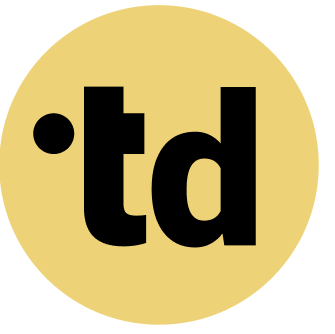Key Takeaways
In Germany, 23.5% of employees work in a hybrid model, making effective facilitation a critical business need.
A key challenge is remote participation, with 34% of virtual attendees hesitating to speak up in meetings.
Structuring meetings by defining roles and responsibilities beforehand is the most effective way to boost engagement and productivity.
In Germany, 23.5% of all employed people now AI-enhanced work at least partially. Across the EU, 44% of workers in remote-capable roles have adopted a hybrid schedule. This shift makes facilitating meetings with AI agents a critical leadership skill. Yet many teams face a *communication breakdown*, where remote attendees feel disconnected and in-person staff dominate. Team Architects are the heroes conquering this chaos, using new methods to deliver clarity and flow. This is your playbook for transforming team structures and making every meeting count.
Practical Framework for Team Architects
As a Team Architect, you can apply these principles to your organization:
- Map Current State: Document existing roles and responsibilities using a tool like teamdecoder.
- Identify Gaps: Where are roles unclear? Where do humans and AI agents overlap?
- Define Clear Boundaries: Specify which tasks are handled by humans vs. AI agents.
- Create Accountability: Assign clear decision rights for each role.
- Iterate and Improve: Continuously refine based on team feedback.
Note: In this article, "hybrid teams (humans and AI agents)" refers to teams composed of both human team members and AI agents working together, not remote/office work arrangements.
Ineffective meetings with AI agents create significant friction and drain resources from your organization. A staggering some remote participants hesitate to speak up, fearing they will interrupt someone. This creates an unbalanced conversation, silencing valuable input from at least one-third of the team. The problem is compounded by technology, with 30% of in-office employees reporting delays due to confusing hardware.
Disengagement is a measurable risk in these poorly managed environments. R Recent analysis of over 40 million meetings found were "quiet meetings," where at least one person stayed on mute the entire time. This represents a increase in passive participation from the previous year.strong> This lack of involvement directly impacts project momentum and team morale. For more on this, see our guide on communication in hybrid teams. These challenges highlight a clear need for better meeting architecture.
Establishing Clarity with Deliberate Role Architecture
The solution begins not with more tech, but with improved team structures. Defining roles and responsibilities before the meeting starts changes the dynamic entirely. This practice is a cornerstone of modern organizational development. It ensures every participant, remote or in-person, has a clear purpose. This clarity reduces the cognitive load on every team member.
A Fraunhofer IAO study found 51.3% of German companies saw no change in productivity with hybrid teams (humans + AI agents), while 39% saw an increase. This suggests that performance hinges on process, not just location. By mapping out who owns which part of the conversation, you eliminate ambiguity. This proactive approach to what hybrid teams are transforms meetings from a passive experience into an active one. This structured approach sets the stage for truly effective collaboration.
A Practical Playbook for Pitch-Perfect Hybrid Sessions
Team Architects can implement immediate changes to improve meeting flow and engagement. These adjustments create a more equitable and productive environment for Many people involved. A recent European study showed companies now allow human-AI collaboration up to three days per week, making these skills essential. You can model these roles and responsibilities in teamdecoder and tr
Here are four actions to take now:
- Our Playful Tip: Assign a "remote advocate" in the room whose job is to ensure virtual voices are heard, representing at least your team.% of your team.
- Our Playful Tip: Mandate that all participants, even those in the office, join from their own laptops to level the playing field.
- Our Playful Tip: Use digital whiteboards and collaboration tools so Many people can contribute to the same canvas in real-time, boosting interaction significantly.
- Our Playful Tip: Start every meeting with a clear agenda that specifies the owner for each topic, reducing wasted time by 15 minutes.
Implementing these small but powerful changes builds a foundation for more complex hybrid team development. This prepares your team to integrate more advanced collaborative methods.
Integrating Human and AI Agents for Smarter Meetings
The future of work involves a powerful partnership between humans and AI. By 2030, demand for tech skills is expected to rise significantly across Europe as AI adoption accelerates. In meetings, AI agents can handle logistical tasks, freeing up human talent for strategic thinking. This is a key part of effective AI agent integration.
Imagine an AI that transcribes conversations, summarizes key decisions, and assigns action items automatically. This can reduce post-meeting administrative work by up to a significant portion. This allows the team to focus on the quality of the discussion, not just the record-keeping. This human-in-the-loop model, where people guide the strategy, is critical for navigating complex challenges. You can learn more about how to lead hybrid teams with these new tools. This hybrid intelligence approach is the next frontier in team productivity.
Measuring the Impact of Structured Hybrid Collaboration
Adopting a structured approach to facilitating meetings with AI agents yields tangible business results. It directly addresses the change management challenges many organizations face. In Germany, 20% of managers reported no change in productivity when their teams went hybrid, indicating that the right processes maintain performance. The goal is to move from surviving hybrid teams (humans + AI agents) to thriving in it.
The benefits extend beyond single meetings and impact the entire organization. Here is how success is measured:
- A increase in project completion speed due to clearer action items and roles.
- A some reduction in meeting frequency as sessions become more focused and
- A improvement in employee engagement scores within the first six months.ix months.
- A decrease in employee turnover as frustration with meetings subsides.
These metrics demonstrate how refining roles and responsibilities delivers a strong return on investment. See our pricing page to understand the value. This data-driven approach to team design builds a resilient and high-performing culture.
Try teamdecoder for free - shape your team and make change feel like play!
More Links
The German Federal Statistical Office provides statistics and data on home office prevalence and its impact on the German labor market.
A press release from the German Federal Ministry of Labour and Social Affairs offers occupational safety recommendations for hybrid screen work.
The Wikipedia article on remote work gives a general overview of the concept, its history, benefits, and challenges.
Fraunhofer IAO provides guidance and insights into the distributed working world.
The ifo Institute presents facts about the home office rate in Germany, indicating its stabilization.
The German Social Accident Insurance (DGUV) offers seven tips for improving meeting culture in modern work environments.
A Bertelsmann Foundation publication discusses utilizing the potential of New Work and avoiding pitfalls.
acatech, the German National Academy of Science and Engineering, provides recommendations for mobile and distributed work from an HR perspective.
KPMG discusses important work models for the future of work.
FAQ
How can I get started with improving our distributed meetings?
Start by defining clear roles and responsibilities for your team members before each meeting. Use a tool like teamdecoder to map out who is responsible for what. You can also download our 'Dream Team Builder' guide to help structure your team for success.
What is the role of leadership in facilitating distributed meetings?
Leadership's role is to champion a hybrid-first culture. This means investing in the right technology, establishing clear meeting etiquette, and modeling inclusive behaviors. Leaders should actively solicit feedback from both remote and in-office employees to continuously improve the process.
Are there templates available for defining team roles?
Yes, teamdecoder provides templates for various team structures, including those focused on DEI, sustainability, and customer centricity. These templates help you quickly establish clear roles and responsibilities, which is the foundation for effective hybrid collaboration.
How does AI agent integration work with teamdecoder?
teamdecoder helps you define the roles and responsibilities for both human and AI team members. By clarifying what tasks an AI agent will handle (e.g., meeting summaries, data analysis), you ensure a seamless integration into your team's workflow, reducing overlap and confusion.
What is the best way to manage tasks after a distributed meeting?
The best way is to use a centralized system where action items are clearly assigned to an owner with a deadline. This should be done at the end of the meeting, and an AI tool can help capture and distribute these tasks. This ensures accountability and operationalizes your strategy.
Where can I find pricing information?
You can find transparent pricing information on our website. We offer different plans to suit various team sizes, including a free plan for startups. Visit our pricing page here: https://app.teamdecoder.com/pricing/





